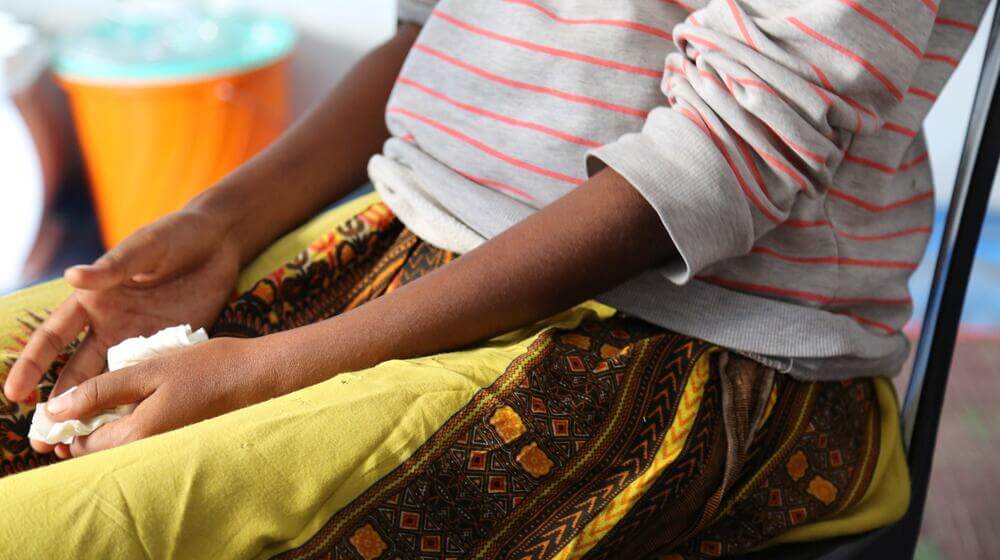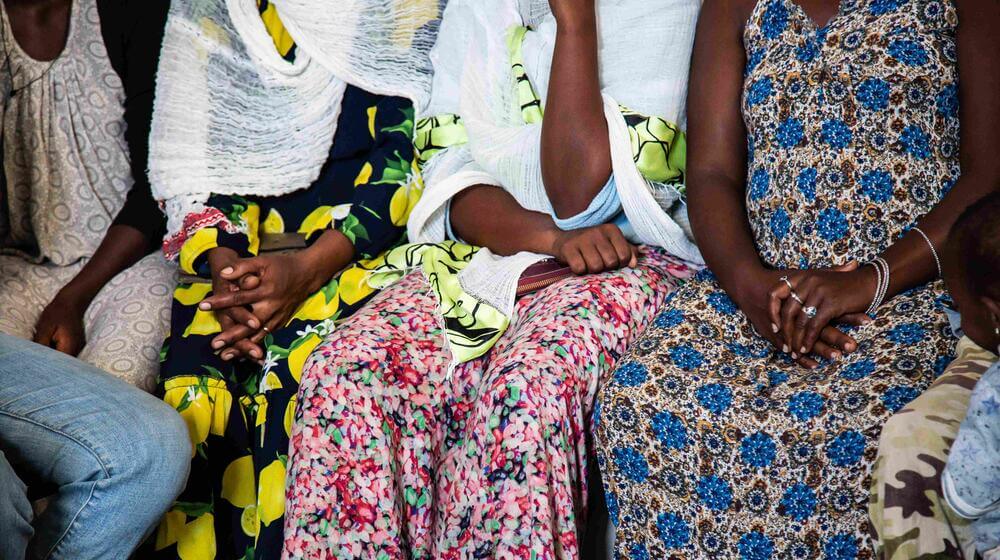
MEKELLE, Tigray – “We tried to flee on the back of a truck, but they caught us. They took me away, raped me and left me in the bush.” Mahlet* was just 17 when she fled her home in November 2021 to escape the conflict raging in Ethiopia’s northern Tigray region.
She didn’t regain consciousness until the next day. Alone, terrified and in pain, she said, “There was no one around to help me.”
Grinding conflict and insecurity in Ethiopia have decimated the health system. Fighting and looting have destroyed most hospitals and medical centers. Mahlet was seven months pregnant by her rapist by the time she was able to access health care.
“I kept it a secret because if one of the community leaders had found out, they would be shocked and I would be discriminated against,” she said.
Sexual violence is hugely under-reported on a global scale. In conflicts like in Ethiopia, however, the obstacles women face to seeking and receiving help can become insurmountable. Few survivors ever speak of their ordeal, for fear of their families and communities stigmatizing them. In turn, they may be unable to access the sexual and reproductive health care that is their right.
A crisis hiding in plain sight
After losing her family in the chaos of conflict, Mahlet found her way alone to a refugee camp. Malnourished, exhausted, and consumed with anxiety for the future, she felt relieved to tell her story.
UNFPA friendly spaces are centers where survivors can access mental health care, dignity kits containing health and sanitary items, and referrals to shelters. The centers offer food, medical care, legal advice, psychosocial support and life-skills training. They also offer a space for survivors to heal and begin the long process of rebuilding their lives.
Support for survivors
Mahlet is just one of countless young girls desperately trying to navigate a situation they had no hand in creating. “This isolation is common among survivors of sexual violence,” said Senait Geber, who manages gender-based violence cases at one of the friendly spaces. “They become invisible in the camp and resort to commercial sex and other activities just to survive.”
Almost 4 million people in Tigray and an estimated 10 million in the Amhara region need life-saving health services, including sexual and reproductive support. More than 80 percent of remaining health facilities in Tigray don’t have maternal health capacity. Similarly, In the Afar region, only 1 in 5 facilities is currently functional. The UN humatitarian coordination office reports that protection from gender-based violence is almost nonexistent. Rape survivors have little to no access to clinical management of rape or other core services.

Providing a safe haven for recovery and healing
Sexual violence can lead to a lifetime of physical and mental health anguish. Those who become pregnant and give birth often face social exclusion, abandonment and poverty. “Many survivors say they would rather die than endure such trauma,” said a nurse at a UNFPA-supported one-stop centre, another kind of facility that brings together various forms of reproductive health, medical and other assistance.
Although the true scale of the crime is almost impossible to assess, a recent report found that sexual violence in humanitarian contexts is increasing, widespread, and in too many cases, normalized. As an unaccompanied, displaced adolescent girl, Mahlet is among the most vulnerable in this dangerous and devastating crisis.
UNFPA initiatives in Ethiopia
UNFPA supports 11 friendly spaces across northern Ethiopia. They have assisted more than 15,000 women and girls so far this year, and 20 one-stop centers. In the Tigray and Amhara regions, UNFPA also works with three shelters to enable survivors to recover through intensive counseling and support. To date, nearly 25,000 people in conflict-affected areas of northern Ethiopia have received support from UNFPA mental health care programs.
There are some 130 children living in the Sabacre 4 camp without family: Most are teenagers like Mahlet. As Ms. Senait indicated, some are resorting to transactional sex in exchange for food or a meager amount of cash. “How can I carry on with this baby when I have to beg just for clothes and food?” Mahlet said. “I can’t even meet my own daily needs.”
Of the 26 million people in Ethiopia in need of urgent humanitarian assistance, nearly three quarters are women and girls. The UNFPA Humanitarian Response Appeal 2022 is calling for nearly $30 million to support the urgent needs of women and girls in eight crisis-affected regions in Ethiopia.
*Name changed for protection purposes.